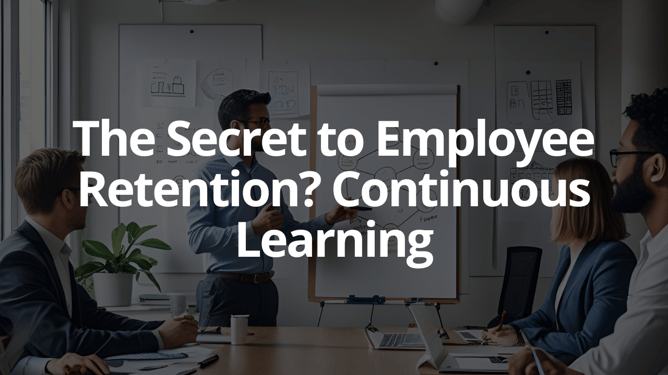What Can You Start Today To Improve Your Resilience?
One is a blog.
Two is a couple of blogs.
Three though, is a blog trilogy.
I say this because this blog here marks the third instalment of our blog series on resilience. What a journey we have had so far, however if this is your entry point into the series, then here’s a quick recap for you.
Firstly, we defined resilience and shared the true power of developing yours. Click here to teleport to that article.
Secondly, we helped you to determine your level of resilience and addressed some common misconceptions. Click here to teleport to that article.
Right here, right now though… we are creating resilience action plans and guiding a way forward to a more resilient future for us all.
A very important disclaimer before we start. This blog has not been written to make you the most resilient person possible today.
Great things take time.
Therefore, we have picked activities that, when they become good habits, will naturally build great resilience.
Let’s get into it!

Build And Nurture Your Support Network
In our second blog of this series and during this episode of the Learn, Grow, Succeed Podcast, we touched on some resilience misconceptions.
A common one being the belief that other people are unable to contribute in any way towards the improvement in your level of resilience, and that no matter the role that someone plays within your life, it will not have any impact on how you are able to deal with life’s twists and turns.
Consider this myth busted! Having a great support network and understanding how and when to use that network is an incredibly powerful way to increase your ability to be resilient. So much so, that its power is both immediate and long lasting. There’s an old saying that says that ‘a problem shared is a problem halved’, and whilst I cannot claim to have an equation that proves that talking to a support network exactly halves the mental magnitude every stressful situation you will ever face, it definitely has an easing sensation on the mind.
When you feel like you can soon become overcome with stress, talking with people within your network can leave your mind feeling replenished, and your thought process refreshed and refocused.
If you are unsure of what your network currently looks like, then it is the perfect time to begin mapping it out. Who exists within your network? What’s the nature of your relationships with each person?
Being pro-active in reaching out to people in your network will also only make the relationships within it deeper, and therefore strengthen your network further.
Develop A More Positive Mindset
Ever had that experience where you’re lying awake at night, overthinking all the things that have happened in your past that you can’t change, or worrying about something upcoming that you’re not going to do anything about at midnight in your PJs?
Our brains can get a little too excited by latching onto a train of thought and going at it like a dog with a bone. We as humans are naturally more reactive than proactive and our minds respond with negative thoughts or emotions – but being more proactive is actually what can really help us feel as though we’re a bit more in control of our lives and experience more positive emotions and productive thinking.
What we need, really, is less dwelling on what could have been and more focus on what you can still make happen. Developing a more positive mindset can help you differentiate between focusing on what you can do – and what you can’t – to help or change a situation.
It also helps you let go of those things that you can’t change – sometimes, although it’s a challenge, the best thing to change is your mind!
Practice Flexibility To Become More Adaptable
Familiarity is comforting.
The unknown, the ambiguous, can be scary.
It’s intimidating feeling like you don’t know what’s happening, and so we can sometimes become rigid in our thinking. It could even be about being in control! We decide that things have to be a certain way, and sometimes we can even have a ‘my way or the highway’ approach! Which is all well and good (sort of) until things don’t go to plan.
Actually, we need to be able to adapt to new ideas and new ways of doing things, whether that’s because we’ve got to come up with a new way of moving forward because our initial plan won’t pan out, or maybe even because the world is changing around us and we have to accept new things – new challenges, new technologies, new ways of working.
This means making the effort to proactively become less rigid in our ideas, to create a real willingness to not only entertain but action alternatives to our initial ideas or plans.
How? Start small! Easing yourself out of your comfort zone helps you become more adjustable to changes, and you can see the opportunities that arise or already exist in alternative routes.
Practice Greater Self Care
Self care is a popular term these days!
Certainly, it is an important part of both our physical and mental health, to do things that constitute taking care of ourselves. What we want to keep in mind is that this is as much the boring stuff as the fun stuff!
Sure, we can have a nice, long bath, take a night off from cooking and treat ourselves to a takeaway, or simply turn off our phones and try some meditation or mindfulness… but remember, a good night’s sleep, eating well and staying hydrated, and keeping mobile and moving as often as possible can be easily overlooked and underrated as some very basic self care!
What can be more of a challenge, is acknowledging and managing the control we have over our own thoughts – a regularly-forgotten part of self-care is actually treating ourselves as though we are worthy of kindness, patience, and compassion.
Continue Your Development
Here’s a real question when it comes to your personal and professional development: do you know the difference between a fixed mindset and a growth mindset?
Put simply, it’s the difference between whether you think you can improve and grow, versus whether you believe you can’t. Having a fixed mindset means you feel just stuck with your lot in life – there’s no way forward for getting better or learning beneficial skills, or even just changing the way that you think about things.
The most effective, happy, impactful people have a growth mindset – they believe they can keep learning, keep improving, and put plans in place to make that happen. (Importantly, they also take action towards it!)
Resilience, emotional intelligence, problem solving… these are all skills. If you’re not convinced that you can learn how to do them better, well… how are you ever going to get better at them?! It’s far less likely that you’ll be taking any action to continue your development if you don’t think that development is possible, but humans are very adaptable – that means you can absolutely learn to do things you can’t currently do.
That includes having a more positive, proactive, and resilient mindset.
Reflect On Lessons Learned From Experiences
Reflecting on our previous experiences can sometimes go a little awry – we might ruminate on what we perceive to be our failures, or worry about things going wrong, particularly if we feel that’s what’s happened in the past.
This is when we have to be honest about why we’re reflecting on past experiences.
Just for fun? For self-torture? To remind ourselves that we’re not perfect?
To be truly resilient, we can acknowledge when things haven’t gone to plan – but importantly, we want to be taking some kind of learning from what’s happened. There will always be something we can take away from a situation that will help us in the future. The good news is, this will often help us feel more positively about a perceived ‘bad’ situation, because it becomes a learning experience rather than something negative to dwell on.
Thanks
Natasha, Alex & The Excel Team
P.S. If you would like to discuss any of your learning & development challenges, book in your discovery call.
%20c.png?width=150&height=125&name=MicrosoftTeams-image%20(9)%20c.png)
/alex-profile-150x150-Aug-19-2022-07-39-26-61-AM.jpg?width=127&height=127&name=alex-profile-150x150-Aug-19-2022-07-39-26-61-AM.jpg)
About Excel Communications
Excel Communications is a learning and development consultancy based near London in the U.K. For more than 30 years; we have been collaborating with clients across the globe.
Partnering with Excel empowers you to evolve your people and business by fuelling a love for learning.
We work with you to create unforgettably, customised learning experiences to achieve your vision of success and growth, with tangible results.
View our case studies here.





